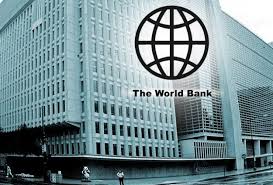It is not a cheering report from World Bank for Nigerian economy.
The Bretton Wood institution projects that Nigeria’s Gross Domestic Product (GDP) growth is expected to hover slightly below two per cent in 2018, largely driven by non-oil industry and services.
Its “Economic Update” issued in Abuja on Wednesday indicates that Nigeria, like many other countries, has underinvested in human capital and remains very low compared to others.
The report stated that Nigeria’s investment in human capital compared to other nations remained very low.
Titled ‘Investing in Human Capital for Nigeria’s Future’, the report noted that, Nigeria, like many other countries, had underinvested in human capital, which was quite low compared to other countries, though it did not provide any statistics.
In recognition that bold actions are required to address years of underinvestment in human capital, the government of Nigeria has established a Human Capital Working Group to develop a unified vision for human capital development and drive implementation of interventions within the ‘Investing in our People’ pillar of the Government’s Economic Recovery and Growth Plan, the bank said.
The statement quoted World Bank Country Director for Nigeria, Rachid Benmessaoud, to have said, “The World Bank welcomed the Government of Nigeria’s recent ‘Call for Action’, requesting all stakeholders to join the Government’s effort to address Nigeria’s alarming human capital outcomes.
“As a member of the Human Capital Working Group, the World Bank stands ready to support the Government of Nigeria in its bold steps to improve the lives of its citizens.”
The report suggests that certain key policy reforms would be important to support macroeconomic resilience for Nigeria.
The bank said that Nigeria’s emergence from recession remained sluggish, adding that sectoral growth patterns were unstable.
“In the second quarter of 2018, the oil sector contracted by four per cent, the usually-resilient agricultural growth slowed significantly to 1.2 per cent, impacted by the security challenges in the Northeast and Middle Belt regions,” the World Bank said.
“The non-oil industry and services, which constitute over half of Nigeria’s economy, picked-up to 3.1 per cent and 2.1 per cent respectively, driven by growth in construction, transport, and ICT.”
“In the second quarter of 2018, the oil sector contracted by 4.0 per cent. The usually resilient agricultural growth slowed significantly to 1.2 per cent, impacted by the security challenges in the northeast and Middle Belt regions.
“The non-oil industry and services, which constitute over half of Nigeria’s economy, picked up to 3.1 per cent and 2.1 per cent, driven by growth in construction, transport and ICT,” it said.
Also, the report notes that the Nigerian economy remains dependent on the small oil sector (under 10 per cent of GDP) for the bulk of its fiscal revenues and foreign exchange earnings.
“Although oil revenues are increasing with recovering oil prices in 2018, distributions to the three tiers of government are constrained by the petrol subsidy and other prior deductions. In the first half of 2018, the current account surplus surpassed 4 per cent of GDP, driven largely by higher oil exports, while non-oil revenue collections have come in lower than envisaged.”
Furthermore, political intrigues ahead of next year’s general elections may negatively affect the full implementation of the over $2.8 billion Eurobond.
The nation’s fragile economic recovery, with current oil price volatility, fiscal challenges and speculated post-election “blues” could also return the country to another round of growth crisis.
In 2015, insecurity and politics overshadowed governance, leading to a reduced capital expenditure provision at below N600 billion. This was worsened by alleged lack of implementation proofs.
Just one year after the polls, the economy went into a recession pushed by a combination of issues such as post-election challenges and policy inaction.
Minister of Budget and National Planning Udoma Udoma had said President Muhammadu Buhari advised his cabinet to pay particular attention to the economy and not be distracted by politics. Some key government officials however are already steeped in politics.
Key implementation ministries such as Finance and Budget and National Planning have also kept mum on the particular projects (and their locations) that proceeds of the Eurobond would finance in the 2018 budget.














